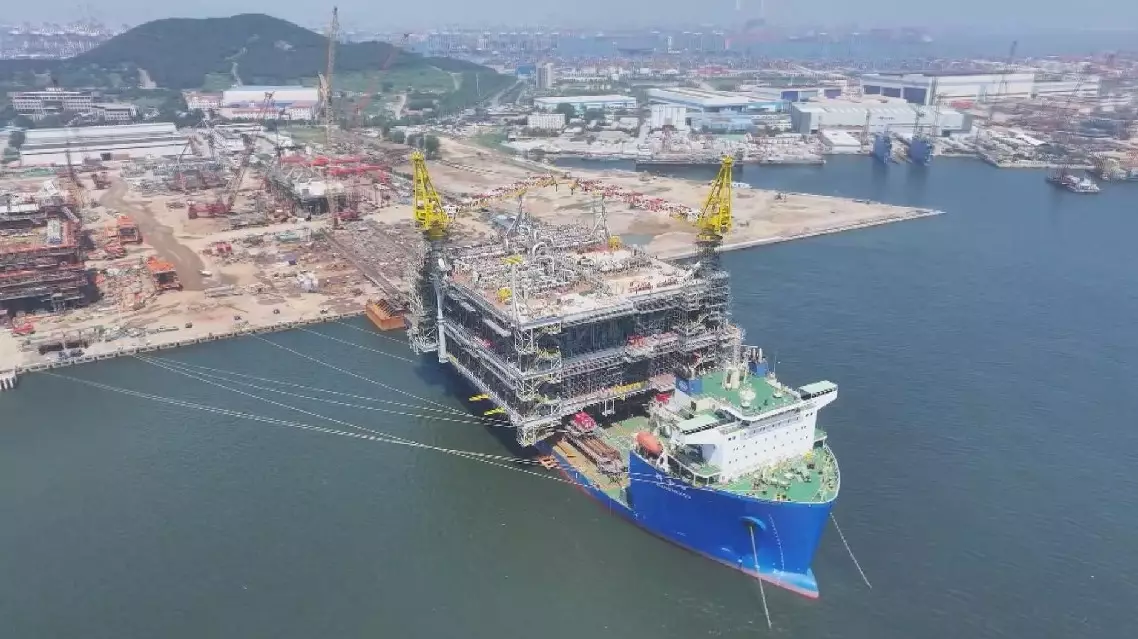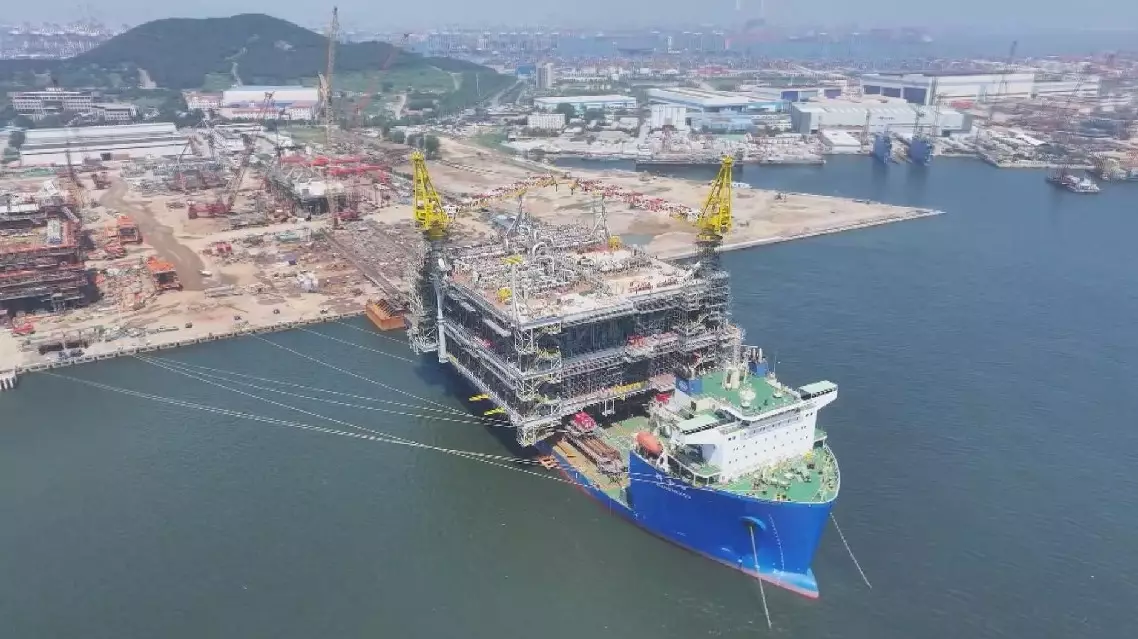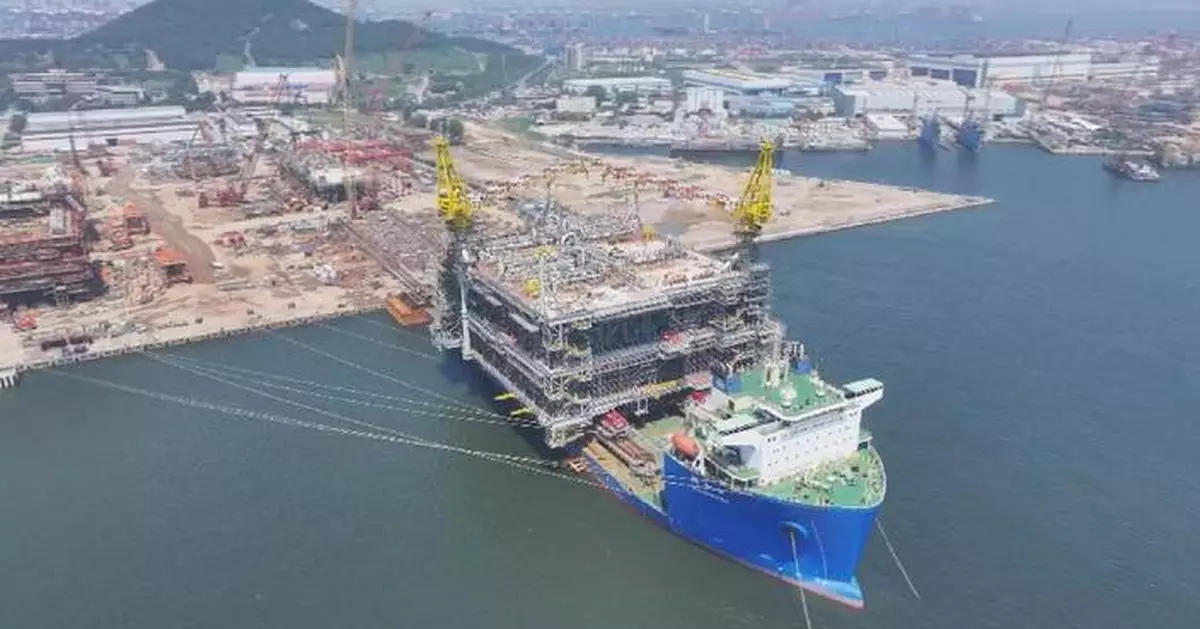The heaviest international offshore oil and gas platform built by China, weighing 17,000 tonnes, was officially delivered after 34 months of construction in Qingdao, east China's Shandong Province on Monday, marking a breakthrough in the country's large-scale offshore oil and gas equipment construction technology.
At the end of this month, the platform will be transported by a large cargo ship to its installation site, 6,400 nautical miles away, in the waters of Saudi Arabia. The platform is mainly responsible for collecting extracted offshore oil and gas and transporting it to land for processing. It consists of complex equipment such as large manifolds, pipeline cleaning, chemical treatment, and operation control.
The deck area of the giant platform is equivalent to 15 standard basketball courts and the height of the platform is higher than that of a 24-story residential building. The massive structure can collect and transport 24 million tonnes of crude oil and 7.4 billion cubic meters of gas every year, with platform scale, pipeline types and sizes, and system complexity all setting records on similar international platforms.
"We independently developed an intelligent management platform, innovated an integrated and visual construction model, and widely applied advanced methods such as automatic welding of composite materials and phased array ultrasonic inspection to improve management and address technical problems. Our management efficiency, construction efficiency, quality pass rate, and safety performance have reached the world's advanced level," said Liu Rui, general manager of COOEC International Engineering Company.
The platform will be installed in the waters of Saudi Arabia to help the Marjan oilfield increase its production capacity. After the Marjan oilfield is fully operational, the annual crude oil production will reach 24 million tonnes.

China-built largest international offshore oil platform delivered

China-built largest international offshore oil platform delivered




















































